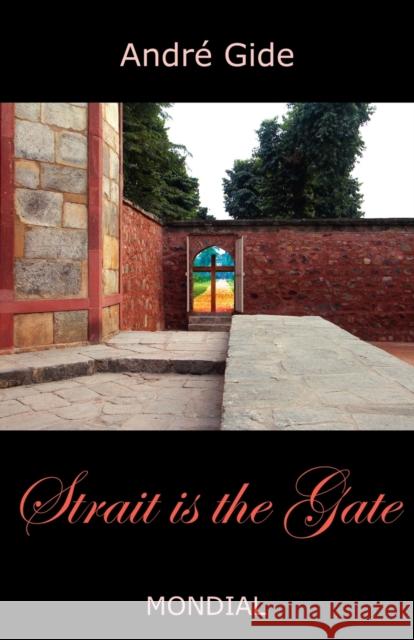Strait Is the Gate (La Porte Etroite) » książka
Strait Is the Gate (La Porte Etroite)
ISBN-13: 9781595690623 / Angielski / Miękka / 2007 / 112 str.
"Strait is the Gate," first published in 1909 in France as "La Porte etroite," is a novel about the failure of love in the face of the narrowness of the moral philosophy of Protestantism. --- Andre Gide (1869 - 1951) was a French author and winner of the Nobel Prize in literature in 1947. Gide's career spanned from the symbolist movement to the advent of anticolonialism in between the two World Wars. Gide's work can be seen as an investigation of freedom and empowerment in the face of moralistic and puritan constraints, and gravitates around his continuous effort to achieve intellectual honesty. His self-exploratory texts reflect his search of how to be fully oneself, without at the same time betraying one's values... --- "For Gide was very different from the picture most people had of him. He was the very reverse of an aesthete, and, as a writer, had nothing in common with the doctrine of art for art's sake. He was a man deeply involved in a specific struggle, a specific fight, who never wrote a line which he did not think was of service to the cause he had at heart." (Francois Mauriac)"
"Strait is the Gate", first published in 1909 in France as "La Porte etroite", is a novel about the failure of love in the face of the narrowness of the moral philosophy of Protestantism. --- André Gide (1869 - 1951) was a French author and winner of the Nobel Prize in literature in 1947. Gides career spanned from the symbolist movement to the advent of anticolonialism in between the two World Wars. Gides work can be seen as an investigation of freedom and empowerment in the face of moralistic and puritan constraints, and gravitates around his continuous effort to achieve intellectual honesty. His self-exploratory texts reflect his search of how to be fully oneself, without at the same time betraying ones values... --- "For Gide was very different from the picture most people had of him. He was the very reverse of an aesthete, and, as a writer, had nothing in common with the doctrine of art for arts sake. He was a man deeply involved in a specific struggle, a specific fight, who never wrote a line which he did not think was of service to the cause he had at heart." (Francois Mauriac)











